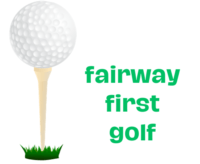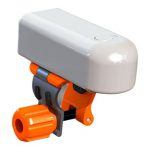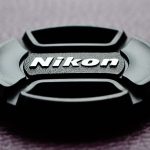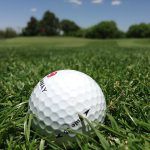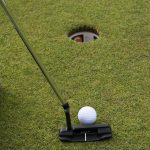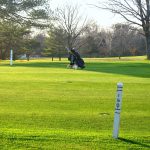
Walking into a golf pro shop or sporting goods store, every golfer is confronted with hundreds of devices promising to take dozens of strokes off your game. Some of these devices are clearly gimmicks meant to skim your wallet. Some of them look like they might be potentially helpful while overpromising results. And then there are some that you might have even seen experienced golfers use.
Rangefinders and GPS units fall into this last category. While not gimmicky, nor guaranteeing that using them will get you on a PGA Tour, they are tools that even experienced golfers consider useful, if not essential.
What’s the Difference between a Rangefinder and a Golf GPS?
[toc]
OK, so what are these units, and why do golfers use them?
Both a rangefinder and a golf GPS are electronic devices used to measure various distances. They accomplish this in two very different ways.
A rangefinder measures distances by shooting a laser at an object and then calculating the distance to that object based on how long it takes the laser to return to the device; kind of like how a bat uses sonic bursts to navigate.
A golf GPS unit uses a global positioning system to identify where the device is; just like your car or phone navigation GPS. The difference between your travel navigation and a golf GPS is that the golf GPS unit will come preprogrammed with locations on different golf courses. Many golf GPS units boast upwards of 30,000 preprogrammed courses. And even if your course isn’t preprogrammed, you can often download your course via an update.
Once the golf GPS connects to satellites, it will give you the distance from your current location to these preprogrammed locations, like the front, back, or center of the green. Different devices have different measurement features.
So, that’s how they both work. The rangefinder aims lasers at objects, the GPS uses satellites to give you the distance to predetermined locations.
Either way, we’re dealing with some relatively high-tech devices. But like all technologies, they have fallen in price over the years, so they are pretty affordable today.
How Do You Use a Rangefinder?
A rangefinder operates by you looking through a monocular (viewfinder) and pointing the laser at an object you want to know the distance to. Many rangefinders will have a zoom feature so that you can see objects far away more clearly.
Another nice feature of many rangefinders is a flagstick identifier. What this means is that they use special technology to pick out the flag from among many objects within view. Depending on the model, when it finds the flag the device may beep, vibrate, or flash a crosshair on the target.
This will give you an exact measurement to the hole; or to a tree line or other object.
Some rangefinders will even calculate slope, which is a nice feature for adjusting to changes in elevations.
How Do You Use a GPS?
The Golf GPS devices are pretty easy to use. Of course, the actual operation will depend on your particular model, but here are the basics.
All you really have to do is turn the unit on and let it coordinate with the satellites. Once it knows what course you are on it will automatically give you certain readings.
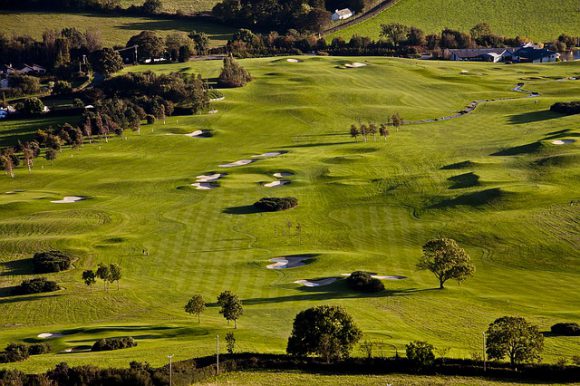
Different models have different things they will measure for you. At the very least they will give you your current distance to the hole. Some models will also give you front, center, and back distances to the green. Advanced models will also give you lay up distance, hazard distances, and dogleg distances.
You don’t really have to do anything to operate these devices other than reading them. Most of them will auto-advance as you move from hole to hole.
When Should I Use a Rangefinder and When Should I Use a Golf GPS?
If you absolutely must have the most accurate measurements, then the rangefinder will be more exact than the golf GPS. The rangefinder (depending on your model) can also calculate for slope, which can make a huge difference in club selection.
If you don’t need measurements within +/- 1 yard, then most golf GPS devices will do fine. They will also give you more diverse information like mentioned above. Some golf GPS will also act as a digital scorecard.
Rangefinder or GPS: Which Is Better?
Both rangefinders and golf GPS come with benefits and drawbacks.
We’ve already looked at why you might want to use them, so what are the drawbacks?
For rangefinders, they can be a bit temperamental. You are aiming a rather exact laser, so making sure you hit your target can be tricky. And when the rangefinder does give you a reading, there always seems to be some doubt as to whether you are measuring what you want or something near the line of sight.
And when playing in foggy conditions, the rangefinder will often fail to acquire its target. Sometimes in daylight, it has this difficulty too.

The Golf GPS has its downsides also.
First, some golfers don’t like having the devices attached to their belts or in their pockets as this affects their swing. So, you have to keep them in your bag, and going into your bag to search for the device often can get irritating.
Second, some devices also have difficulty syncing up with the satellites. Nothing can be more frustrating than needing to know the distances to the pin only to get a “searching” error from your golf GPS.
Third, golf GPS units are not as exact as rangefinders. If you absolutely have to know the distance within +/- 1 yard, the golf GPS unit can’t do that.
But most golfers don’t need that kind of accuracy anyway. So long as it can get you within 10-20 yards, that should be sufficient for most.
Final Verdict
So, should you buy a rangefinder or a golf GPS? Most golfers find both these tools useful in different situations.
No doubt, knowing the distance to the hole or to a dogleg can greatly affect how you play. If you have any difficulty judging distances or with club selection, either one of these devices can give you more confidence. And yes, maybe even take some strokes off your game!
